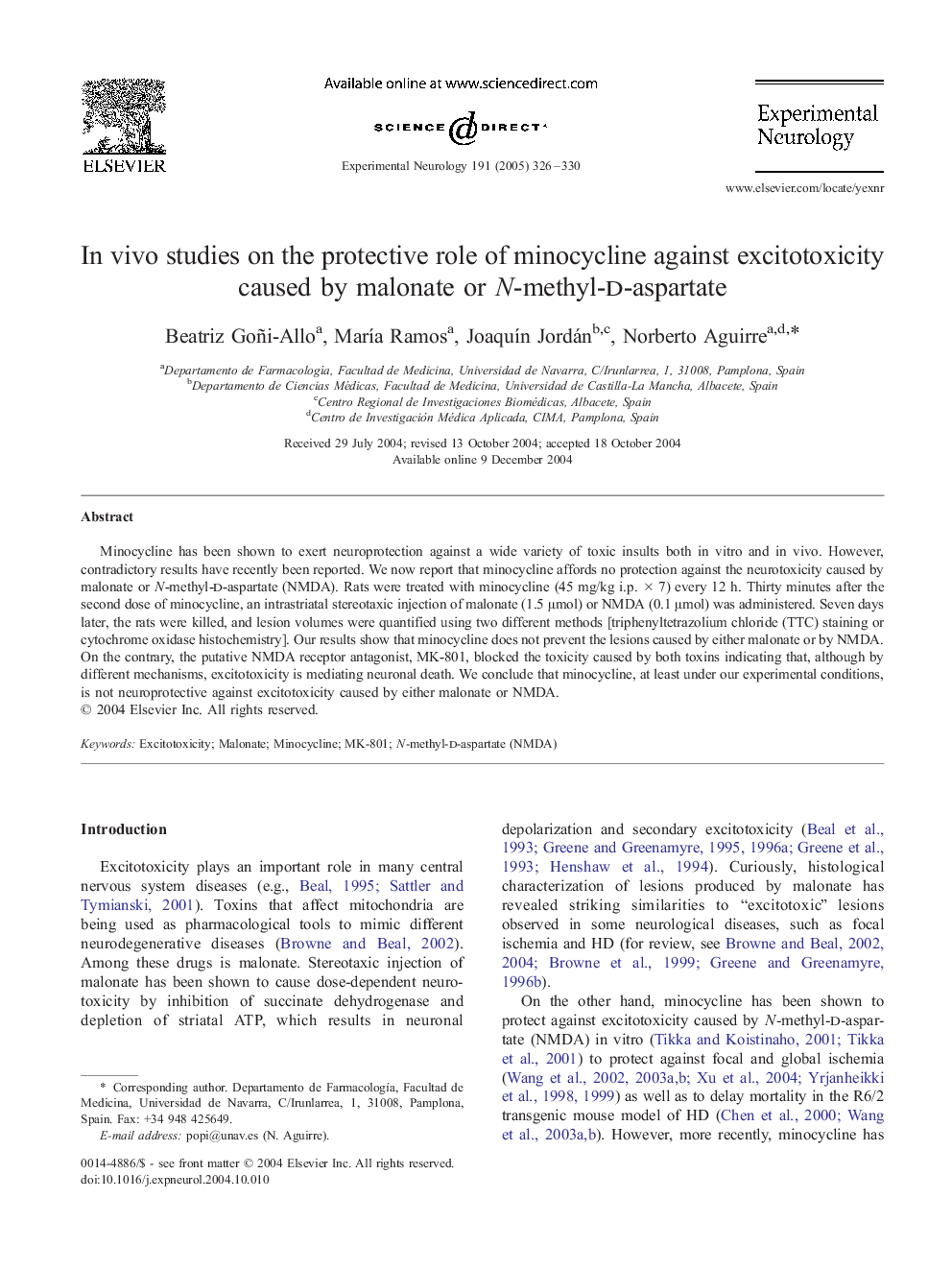| Article ID | Journal | Published Year | Pages | File Type |
|---|---|---|---|---|
| 9192041 | Experimental Neurology | 2005 | 5 Pages |
Abstract
Minocycline has been shown to exert neuroprotection against a wide variety of toxic insults both in vitro and in vivo. However, contradictory results have recently been reported. We now report that minocycline affords no protection against the neurotoxicity caused by malonate or N-methyl-d-aspartate (NMDA). Rats were treated with minocycline (45 mg/kg i.p. à 7) every 12 h. Thirty minutes after the second dose of minocycline, an intrastriatal stereotaxic injection of malonate (1.5 μmol) or NMDA (0.1 μmol) was administered. Seven days later, the rats were killed, and lesion volumes were quantified using two different methods [triphenyltetrazolium chloride (TTC) staining or cytochrome oxidase histochemistry]. Our results show that minocycline does not prevent the lesions caused by either malonate or by NMDA. On the contrary, the putative NMDA receptor antagonist, MK-801, blocked the toxicity caused by both toxins indicating that, although by different mechanisms, excitotoxicity is mediating neuronal death. We conclude that minocycline, at least under our experimental conditions, is not neuroprotective against excitotoxicity caused by either malonate or NMDA.
Related Topics
Life Sciences
Neuroscience
Neurology
Authors
Beatriz Goñi-Allo, MarÃa Ramos, JoaquÃn Jordán, Norberto Aguirre,
